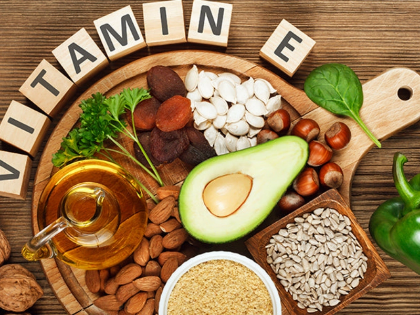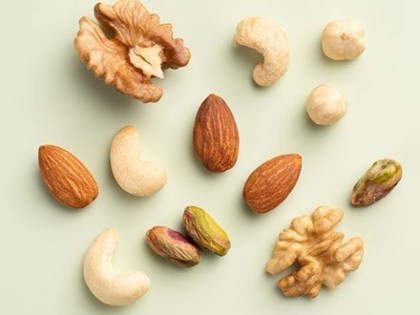Grains' Function in Promoting Healthful Digestion
In addition to being a good source of fibre, grains also contain iron, magnesium, and the B vitamins (thiamin, riboflavin, niacin, and folate). Whenever feasible, opt for whole grains rather than refined ones. The endosperm is all that remains of refined grains after the bran and germ have been removed. Most white breads, pastries, and crackers are examples of foods that include refined grains.
Complete Protein

Fibre
 Your digestive tract's microorganisms take care of items the body is unable to perform on its own. They support healthy nutrition absorption, blood sugar regulation, infection prevention, and the warding off of chronic illnesses.
Consuming adequate whole grains contributes to giving the gut flora the nourishment they require to carry out their functions. Additionally high in dietary fibre, grains may help lower your risk of diabetes and heart disease.
Whole grains, such as wheat, barley, bulgur or cracked wheat, brown rice, oats, and rye, are the finest sources of grains. Grain products that have been refined—like corn grits or white flour—have had their bran and germ removed through milling. This procedure removes dietary fibre, iron, and several other vitamins and minerals, including the B vitamins (thiamin, riboflavin, niacin, and folic acid), which changes the nutritional composition of the grains. Whenever feasible, opt for whole grains rather than refined ones.
Your digestive tract's microorganisms take care of items the body is unable to perform on its own. They support healthy nutrition absorption, blood sugar regulation, infection prevention, and the warding off of chronic illnesses.
Consuming adequate whole grains contributes to giving the gut flora the nourishment they require to carry out their functions. Additionally high in dietary fibre, grains may help lower your risk of diabetes and heart disease.
Whole grains, such as wheat, barley, bulgur or cracked wheat, brown rice, oats, and rye, are the finest sources of grains. Grain products that have been refined—like corn grits or white flour—have had their bran and germ removed through milling. This procedure removes dietary fibre, iron, and several other vitamins and minerals, including the B vitamins (thiamin, riboflavin, niacin, and folic acid), which changes the nutritional composition of the grains. Whenever feasible, opt for whole grains rather than refined ones.
Minerals
 Grain crops are effective at producing carbs, protein, and other macronutrients from sunlight, fertiliser, and water. They have been a part of our evolution into agrarian communities for thousands of years.
The tiny, edible seeds that make up cereals—plants that resemble grass—include wheat, barley, buckwheat, bulgar, corn, rye and rice. Grain foods can be divided into two categories: whole grains and processed grains. While refined grains have had their bran and germ removed, leaving only the carbohydrate-rich endosperm, whole grains include the entire grain kernel, including the bran and germ. In general, whole grain-based cuisine is healthier than refined grain-based cuisine.
Eating whole grains improves digestion, reduces inflammation, and lowers blood cholesterol. Important nutrients like dietary fibre, complex carbohydrates, iron, protein, B vitamins, and dietary fibre are also obtained by eating whole grains. Whole grains are also rich in phytochemicals that are good for your health. These plant-based substances have been shown to reduce the risk of obesity, heart disease, and cancer.
Grain crops are effective at producing carbs, protein, and other macronutrients from sunlight, fertiliser, and water. They have been a part of our evolution into agrarian communities for thousands of years.
The tiny, edible seeds that make up cereals—plants that resemble grass—include wheat, barley, buckwheat, bulgar, corn, rye and rice. Grain foods can be divided into two categories: whole grains and processed grains. While refined grains have had their bran and germ removed, leaving only the carbohydrate-rich endosperm, whole grains include the entire grain kernel, including the bran and germ. In general, whole grain-based cuisine is healthier than refined grain-based cuisine.
Eating whole grains improves digestion, reduces inflammation, and lowers blood cholesterol. Important nutrients like dietary fibre, complex carbohydrates, iron, protein, B vitamins, and dietary fibre are also obtained by eating whole grains. Whole grains are also rich in phytochemicals that are good for your health. These plant-based substances have been shown to reduce the risk of obesity, heart disease, and cancer.
Vitamins
 Protein, vitamins, and minerals that are good for your health can be found in grain bran and germ. Vitamins B and E, polyphenols, and starches high in carbohydrates are found in the endosperm. (2)
When feasible, opt for whole grains. These comprise the bran, germ, and endosperm of the grain kernel in their natural proportions. Additionally, they don't include phytates—chemically treated substances that hinder the absorption of nutrients.
Make sure you're receiving adequate nutrients by carefully reading the ingredient list and Nutrition Facts label when selecting grain-based items. For instance, try to consume three 1-ounce portions, or roughly 28 grammes, of grains each day.
The majority of Americans do not consume enough whole grains. Increasing the amount of grains in your diet can help with weight control, heart disease risk factors, and digestive difficulties. To keep your body healthy, try to reduce added sugars, sodium, and saturated fat and to choose whole grains as much as possible.
Protein, vitamins, and minerals that are good for your health can be found in grain bran and germ. Vitamins B and E, polyphenols, and starches high in carbohydrates are found in the endosperm. (2)
When feasible, opt for whole grains. These comprise the bran, germ, and endosperm of the grain kernel in their natural proportions. Additionally, they don't include phytates—chemically treated substances that hinder the absorption of nutrients.
Make sure you're receiving adequate nutrients by carefully reading the ingredient list and Nutrition Facts label when selecting grain-based items. For instance, try to consume three 1-ounce portions, or roughly 28 grammes, of grains each day.
The majority of Americans do not consume enough whole grains. Increasing the amount of grains in your diet can help with weight control, heart disease risk factors, and digestive difficulties. To keep your body healthy, try to reduce added sugars, sodium, and saturated fat and to choose whole grains as much as possible.










